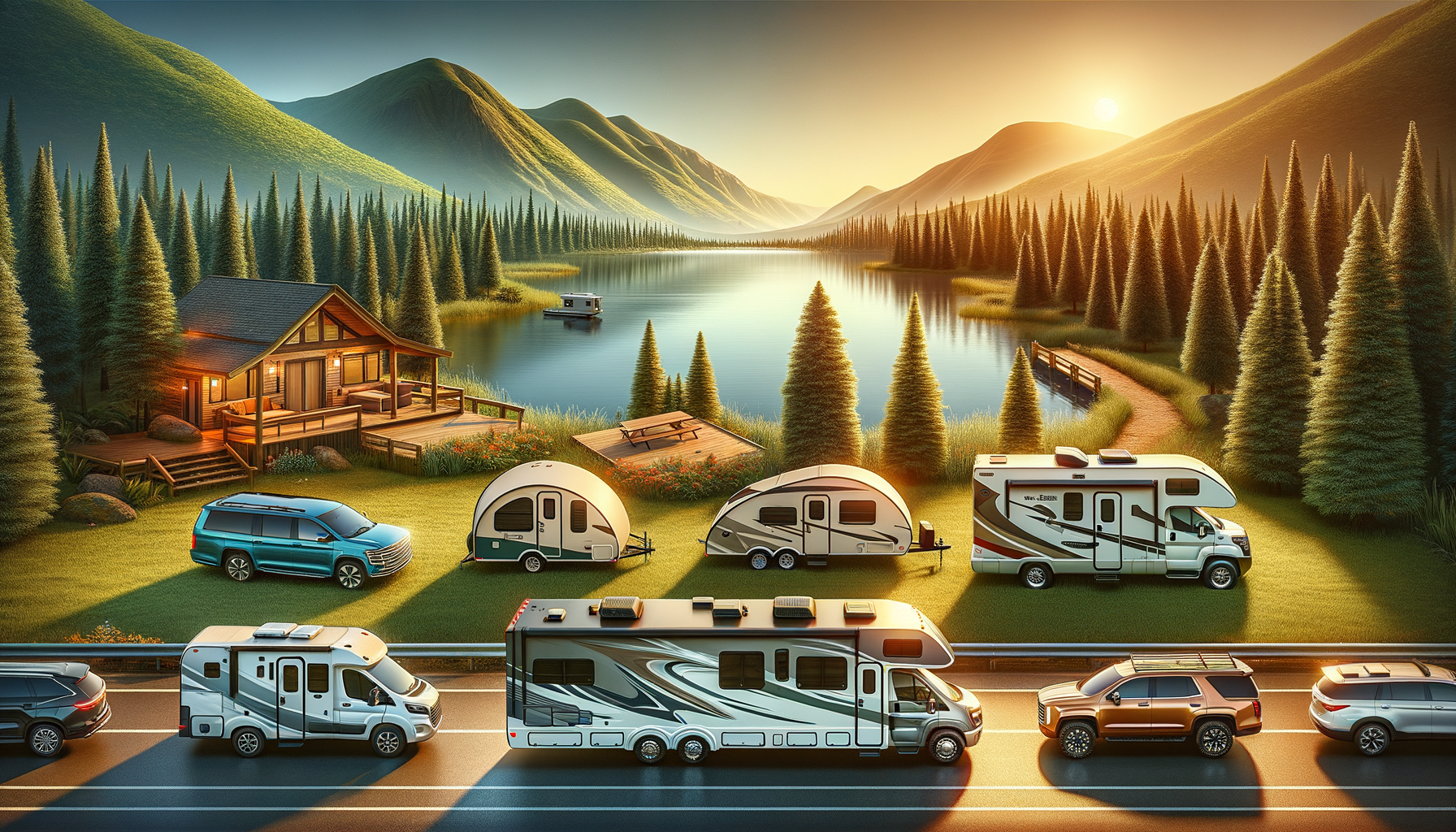Understanding the Different Types of RV Campers
When venturing into the world of RV campers, it’s essential to understand the variety of options available. RV campers come in numerous forms, each catering to different needs and preferences. Broadly, RVs can be categorized into motorized and towable types. Motorized RVs, such as Class A, B, and C motorhomes, are self-contained vehicles with engines, offering the convenience of driving and living in the same unit. Class A motorhomes are the largest, providing extensive space and luxury, while Class B motorhomes, often referred to as camper vans, offer more compact and maneuverable options. Class C motorhomes strike a balance, offering ample living space with easier handling.
On the other hand, towable RVs, including travel trailers, fifth wheels, and pop-up campers, require a separate vehicle for towing. Travel trailers are highly popular due to their versatility and range in size, accommodating various family sizes and budgets. Fifth wheels, recognized by their distinctive hitching system, provide more stability and space, making them a favored choice for long-term travelers. Pop-up campers, or tent trailers, are lightweight and compact, ideal for those who prioritize ease of towing and storage.
Each type of RV camper has its unique advantages and considerations, and the choice largely depends on individual lifestyle, travel preferences, and budget. Whether you seek the luxury of a motorhome or the flexibility of a towable trailer, understanding these categories will guide you in making an informed decision.
Key Features to Consider in RV Campers
When selecting an RV camper, several key features should be considered to ensure it meets your travel and living needs. One of the primary considerations is the layout and floor plan. A well-designed floor plan can significantly enhance the comfort and usability of the space. Look for features like slide-outs, which expand the living area when parked, and ensure that the sleeping arrangements, kitchen, and bathroom facilities align with your requirements.
Storage is another critical factor, especially for extended trips. Consider the available storage options both inside and outside the RV. Ample storage ensures you can carry all necessary equipment and personal items without cluttering the living space. Additionally, the kitchen amenities should be evaluated, from the size of the refrigerator to the cooking facilities, to ensure they suit your culinary needs on the road.
Modern RVs often come equipped with advanced technology and entertainment systems, enhancing the travel experience. Features such as solar panels, Wi-Fi boosters, and smart home systems can provide added convenience and connectivity. Safety features, including backup cameras, tire pressure monitoring systems, and advanced braking systems, are also crucial, ensuring a safe journey.
Ultimately, the choice of features will depend on your travel style, whether you prioritize luxury, convenience, or practicality. Evaluating these key features will help you select an RV camper that truly feels like a home on wheels.
Cost Considerations and Budgeting for RV Campers
Investing in an RV camper involves significant financial planning, as costs can vary widely depending on the type, size, and features of the RV. The initial purchase price is just one aspect of the total cost. It’s essential to consider ongoing expenses such as insurance, maintenance, and storage. Motorized RVs generally have higher upfront costs compared to towable trailers, but they also offer more convenience and amenities.
Insurance is a necessary expense, and rates can vary based on the RV’s value, type, and usage. It’s advisable to shop around for insurance quotes and choose a policy that provides comprehensive coverage. Maintenance costs are another consideration, as regular servicing is required to keep the RV in good condition. This includes engine maintenance for motorized RVs, as well as checks on the plumbing, electrical systems, and appliances.
Storage can also be a significant cost if you don’t have space at home to park the RV. Many owners opt for storage facilities, especially during off-seasons, which can add to the overall expense. Additionally, fuel costs should be factored in, particularly for larger motorhomes that consume more fuel.
Budgeting for these expenses is crucial to ensure that owning an RV camper remains an enjoyable and sustainable experience. By carefully evaluating all costs associated with RV ownership, you can make a well-informed decision that aligns with your financial situation.
Practical Usage and Lifestyle Considerations
Owning an RV camper offers a unique lifestyle, providing the freedom to travel and explore at your own pace. However, it’s important to consider the practical aspects of living and traveling in an RV. One of the main advantages is the ability to camp in diverse locations, from national parks to remote wilderness areas, offering a closer connection to nature.
The flexibility of RV travel allows for spontaneous adventures, but it also requires careful planning, especially regarding route and destination choices. Not all roads and campgrounds accommodate large RVs, so it’s essential to research and plan your travels accordingly. Additionally, understanding how to operate and maintain the RV is crucial for a smooth experience. This includes managing water and waste systems, operating slide-outs, and troubleshooting common issues.
Living in an RV also means adapting to a more minimalist lifestyle, as space is limited. This can be a rewarding experience, encouraging you to prioritize essentials and simplify your living arrangements. Many RV owners appreciate the sense of community among fellow travelers, often forming friendships and sharing experiences on the road.
Whether you plan to use the RV for occasional vacations or as a full-time residence, understanding these practical considerations will help you make the most of your RV lifestyle.
Environmental Impact and Sustainability
As awareness of environmental issues grows, many RV enthusiasts are seeking ways to minimize their impact while enjoying the RV lifestyle. RVs, particularly motorized ones, have a carbon footprint, mainly due to fuel consumption. However, there are steps you can take to make RV travel more sustainable.
One approach is to invest in energy-efficient features, such as solar panels and LED lighting, which reduce reliance on fossil fuels. Solar panels can power many of the RV’s systems, from lighting to appliances, providing a renewable energy source. Additionally, choosing eco-friendly campgrounds that prioritize sustainable practices can further reduce your environmental impact.
Conservation of resources is another important aspect. This includes using water sparingly, recycling waste, and choosing biodegradable products. Many RV owners also participate in volunteer programs that focus on environmental conservation and education, contributing to the preservation of natural areas.
By adopting sustainable practices, RV travelers can enjoy the freedom of the open road while being mindful of their environmental responsibilities. This balance enhances the experience, ensuring that future generations can also enjoy the beauty of nature through RV travel.




Leave a Reply